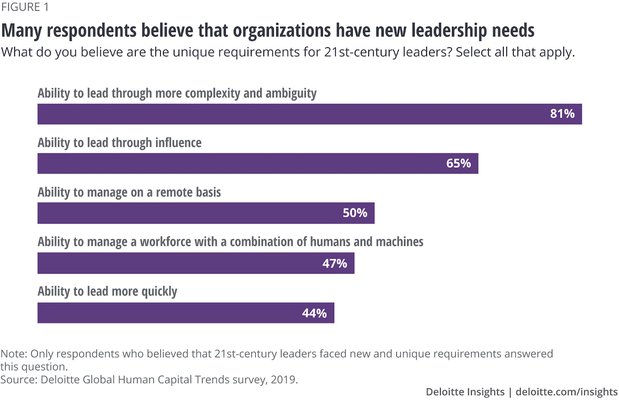Leaders. You can recognize them from afar based on how they talk, present themselves, and what reputation they carry among others. Perhaps you are one of them or aspire to become such a figure in your new job. In either case, you need to summarize your leadership abilities and present them to the employer. This can be hard, especially if you feel that leadership comes to you naturally. Here’s a bit of help!
What are Leadership Skills?
Leadership skills indicate your ability to organize and guide other people towards a shared goal. In a wider sense, leadership skills also include your ability to instill a sense of common purpose, guide others, rally the support, and encourage positive change within others.
Great leaders are hard to define but impossible to miss at the workplace as it’s the person others look up to on many occasions.
However, strong leadership skills do not always correlate with the seniority of the position. You can find plenty of group leaders at the grassroots of an organization and quite a few amorphic figures sitting atop. But, if you want to move up the organizational ranks or secure your entry-level leadership position (e.g. team leader or junior manager), you have to demonstrate good leadership skills both on your resume and during the job interview.
What are Some Solid Leadership Skills Examples for a Resume?
As you already know ‘keywords’ are essential to getting your resume and LinkedIn profile noticed. If you want to prompt an HR that you are a strong candidate for a managerial/exec position, be sure to sprinkle in some of the following in-demand skills:
- Persuasion: ranked as #2 on the 2020 LinkedIn List of most in-demand soft skills. Great leaders can effectively persuade others to take the right course of action and reach an agreement with different stakeholders.
- Active listening: Leaders are not just smooth talkers, but also good listeners, capable of collecting feedback from others and acting upon it.
- Empathy and emotional intelligence: Both traits are important for building and maintaining a strong rapport with others.
- Strategic thinking: Studies suggest that ‘strategic thinking’ as leadership quality strongly correlates with the perception of “success” and “effectiveness” in the workplace.
- Creativity and innovation: As much as 77% of CEOs struggle to find executive team members that possess these two skills, according to a PwC study.
In addition, last year’s study by Deloitte identified that companies are increasingly looking for leaders with the following skills:

Source: Deloitte
Finally, apart from listing the general leadership skills on your resume, look into the job description itself. Most likely it will include some baseline requirements and preferred qualities. Lastly, hope on the company’s website and check out their Mission Statement. What type of values and culture do they promote? Remember: different businesses prioritize different leadership styles. For example, a more assertive leadership style may work well in a legal firm or a finance company. But a B2C tech startup will probably need a ‘gentler’ more collaborative leader that can empower, rather than command.
How to List Leadership Skills on Your Resume
Once you’ve settled on your list of leadership skills, relevant to the position you are pitching for, start adding these to your resume.
There are several ways to do so organically:
- Add several to a Skills section of your resume. (Don’t have one? Grab a professional resume template, featuring one).
- Incorporate some to your resume summary (if you intend to include it).
- Weave in several more when describing your duties and accomplishments.
Remember: You don’t need to include every leadership-related keyword to your resume. Leave some for your cover letter and the job interview itself.
If you are applying for a managerial position, high chances are that the recruiter will pop the “Tell me about a time when you demonstrated leadership skills…” behavioral interview question.
This is when you can further describe the scope of leadership and interpersonal skills that you possess with short stories and examples.
Bonus tip: Don’t forget to optimize your LinkedIn profile summary too with some popular leadership skills!
Wait, But What If I Don’t Know What My Leadership Skills Are?
Relax, that’s something you can easily find out by asking around. Approach some of your friends, colleagues, and subordinates and ask for their feedback. Since most people will find it hard to pin down a specific skill right on the spot, ask them to just start telling you about what they think of your abilities to manage, lead, and influence others.
This can be a nice exercise to help you identify your strengths and weaknesses when it comes to leadership.
Speaking of the latter, if you feel that your leadership skills are limited or do not fully match the position you are eyeing, you can always do some learning.
Here’s how to improve leadership skills:
- Sign up for a coaching/mentorship session with a senior leader in your space.
- Pick up a new book from a leader you admire.
- Get some hands-on training through volunteering.
- Work more on your communication skills.
- Start taking a more active part in your team/department social life.
- Pick up several new negotiation and persuasion techniques.
- Work on developing better situational awareness skills.
- Network more actively and learn from others!
Remember: Few good leaders are born. Most are self-made.
To Conclude
Leadership skills are multi-facet and somewhat hard to pin-down to a specific list of items. Perhaps, Bill Gates said it best: “The leader needs to create an environment in which people can analyze the situation and develop a good response”. Thus, showcase that you can lead through your work experience, accomplishments, and project tracking. Don’t get overly-focused on using ‘leader’ as many times as you can on your resume. Instead, focus on telling how you can make an impact among other team members, and how jointly you can accomplish more for the employer.






